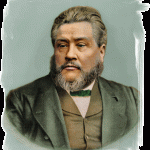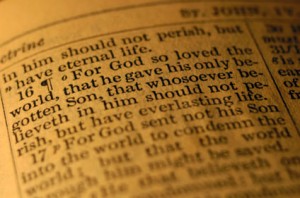 REJECTION IS NOT REFUTATION
REJECTION IS NOT REFUTATION
Dr. Don Kistler, founder of the Northampton Press, was born in California in 1949, the second of five sons of Jack and Faye Kistler. He grew up on a dairy farm in Central California and graduated from Azusa Pacific College in Southern California in 1971 with a double major in public speaking and religion. He holds the M. Div. and D. Min. degrees, and is an ordained minister. Prior to entering the gospel ministry, Dr. Kistler coached high school and college football for over 15 years.
Dr. Kistler pastored a local church for four years. As part of his preaching and teaching ministry, he has spoken at conferences with such notable figures as Dr. John MacArthur, Dr. R. C. Sproul, Dr. D. James Kennedy, Dr. J. I. Packer, Dr. John Gerstner, Elisabeth Elliot, Dr. Sinclair Ferguson, Dr. Michael Horton, Rev. Alistair Begg, Dr. Albert M. Mohler, the late Dr. James Boice, and Rev. Eric Alexander, to name just a few.
Dr. Kistler is the author of the book A Spectacle Unto God: The Life and Death of Christopher Love, and Why Read the Puritans Today? and is the editor of all the Soli Deo Gloria Puritan reprints. He was a contributing author for Justification by Faith ALONE!; Sola Scriptura; Trust and Obey: Obedience and the Christian; Onward, Christian Soldiers: Protestants Affirm the Church; and Feed My Sheep: A Passionate Plea for Preaching.
He has edited over 150 books. He currently resides in Orlando, FL.
(The following is a transcript I wrote, taken from Lecture 2 of a seminar on Jonathan Edwards by Dr. Don Kistler, at Saint Andrews Chapel, Sanford, Florida, September 2003.)
Dr. Don Kistler – “People will often say “I don’t agree with you” but what does that prove? So what?”
“Let me tell you how this was driven home to me by the late Dr. John Gerstner. I was his pastor for four years (and you think you have pressure on the job). We used to drive to a Bible Study and I’d gotten a question in the mail from someone about Sabbath breaking (someone who was a very strict Sabbatarian) and they asked if anyone who did not keep a very strict Sabbath could REALLY be a Christian (that was the essence of the question).
I always drove Dr. Gerstner in his car and so I asked him, “how would you respond to this question?” I realized, you don’t ask him questions. He asks the questions.
Dr. Gerstner said, “Lets suppose for the sake of the argument that you are a practicing Sabbath breaker and I am a practicing homosexual.” He says, “Are you going to heaven or to hell?”
I said, “I’m going to heaven.”
He said, “Am I going to heaven or to hell?”
I said, “You’re going to hell.”
He said, “So you’re violating one of God’s commands and you get to go to heaven but I am violating one of God’s commands and I have to go to hell. What is it, did I pick the wrong command, Don?”
“Well,” I said, “the scripture is not as emphatic about Sabbath breaking as it is about homosexuality. Paul calls that the lowest form of degradation that there is. The Bible never calls Sabbath breaking an abomination… errr.. how’s that?”
Gerstner responded, “How’s that?… How’s what?”
I said, “my answer.”
He said, “what answer? You fumbled around and tried to throw a few verses at me. Did you think you were going to intimidate me with a couple of verses? Now do you have an answer to my question or not?”
Panting for breath I said, “well, good and godly men have disagreed over the issue of the Sabbath, you know Calvin and Luther and your man Sproul.”
He said, “ok, Calvin and Luther and Sproul and you and me will all be in hell together. Now what is your response to my question? Why is it YOU get to go to heaven and you can violate a command of God and I can’t violate a command of God but I have to go to hell. What kind of a system are you running here?”
Well I am really sweating bullets… and so we pull up to the place we are going and I ask, “what’s the answer?”
He said, “we’ll talk about it on the way home.”
“On the way home? That’s another hour!”
Well he did this all the way home and when we got there I said, “now tell me what the answer is.”
He said, “we’ll do it next month.”
“No, we’re not doing it next month. I want to sleep between now and next month.”
(I was ready to admit that practicing homosexuals could go to heaven)….
I said, “what’s the answer?”
He said, “you gave me the answer the first time I asked you.”
I said, “what?”
“Yeah, you’re absolutely right. The Bible does not say that Sabbath breaking is an abomination and does not put it on the same level as homosexuality. Paul is very clear that those who practice homosexuality shall not inherit the kingdom of God. He does not say that about Sabbath breaking. You gave me the right answer.”
I said, “then why did you do that to me?” (I was really mad)
And he said, “Don Kistler, you had the truth and you had Scripture behind you and you caved because somebody you admired didn’t agree with you. Don’t you ever in your life compromise the Scriptures because of some man’s reputation in your mind. You stand uncompromising for the word of God no matter who says anything.” And then he said, “rejection is not refutation.”
 “… precious and very great promises.” – 2 Peter 1:4
“… precious and very great promises.” – 2 Peter 1:4
 REJECTION IS NOT REFUTATION
REJECTION IS NOT REFUTATION Dr. R. C. Sproul, in his book, “Chosen by God” writes:
Dr. R. C. Sproul, in his book, “Chosen by God” writes:
 TurretinFan answers the question, why didn’t anyone realize it before the Protestant Reformers?”
TurretinFan answers the question, why didn’t anyone realize it before the Protestant Reformers?” Philippians 3: 3 For we are the circumcision, I have more: 5 circumcised on the eighth day, of the people of Israel, of the tribe of Benjamin, a Hebrew of Hebrews; as to the law, a Pharisee; 6 as to zeal, a persecutor of the church; as to righteousness under the law, blameless. 7 But whatever gain I had, I counted as loss for the sake of Christ. 8 Indeed, I count everything as loss because of the surpassing worth of knowing Christ Jesus my Lord. For his sake I have suffered the loss of all things and count them as rubbish, in order that I may gain Christ 9 and be found in him, not having a righteousness of my own that comes from the law, but that which comes through faith in Christ, the righteousness from God that depends on faith..”
Philippians 3: 3 For we are the circumcision, I have more: 5 circumcised on the eighth day, of the people of Israel, of the tribe of Benjamin, a Hebrew of Hebrews; as to the law, a Pharisee; 6 as to zeal, a persecutor of the church; as to righteousness under the law, blameless. 7 But whatever gain I had, I counted as loss for the sake of Christ. 8 Indeed, I count everything as loss because of the surpassing worth of knowing Christ Jesus my Lord. For his sake I have suffered the loss of all things and count them as rubbish, in order that I may gain Christ 9 and be found in him, not having a righteousness of my own that comes from the law, but that which comes through faith in Christ, the righteousness from God that depends on faith..” It was a typical day in ancient Rome. As they entered the dreaded arena they had only to say two words and they could live: Kaiser Kurios – Caesar is Lord. Instead they proclaimed: Jesus Kristus Kurios — Jesus Christ is Lord — and paid for the privilege with their blood.
It was a typical day in ancient Rome. As they entered the dreaded arena they had only to say two words and they could live: Kaiser Kurios – Caesar is Lord. Instead they proclaimed: Jesus Kristus Kurios — Jesus Christ is Lord — and paid for the privilege with their blood.
